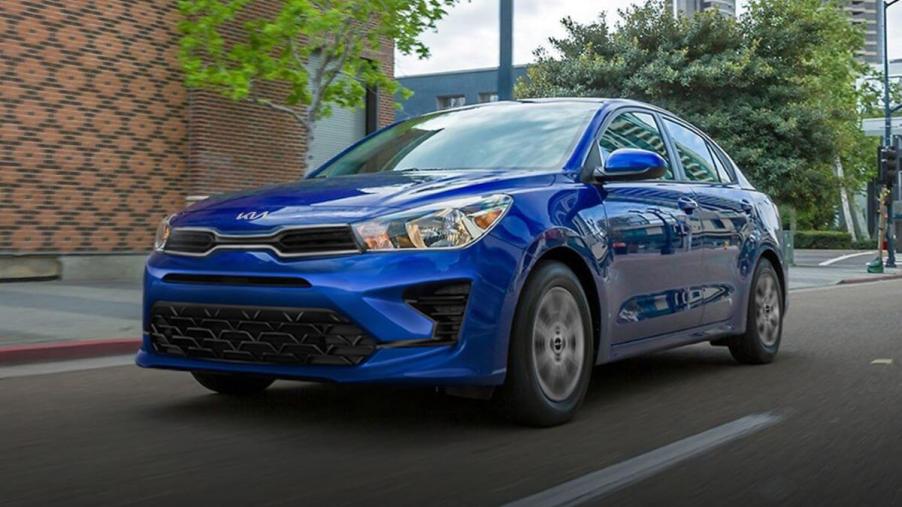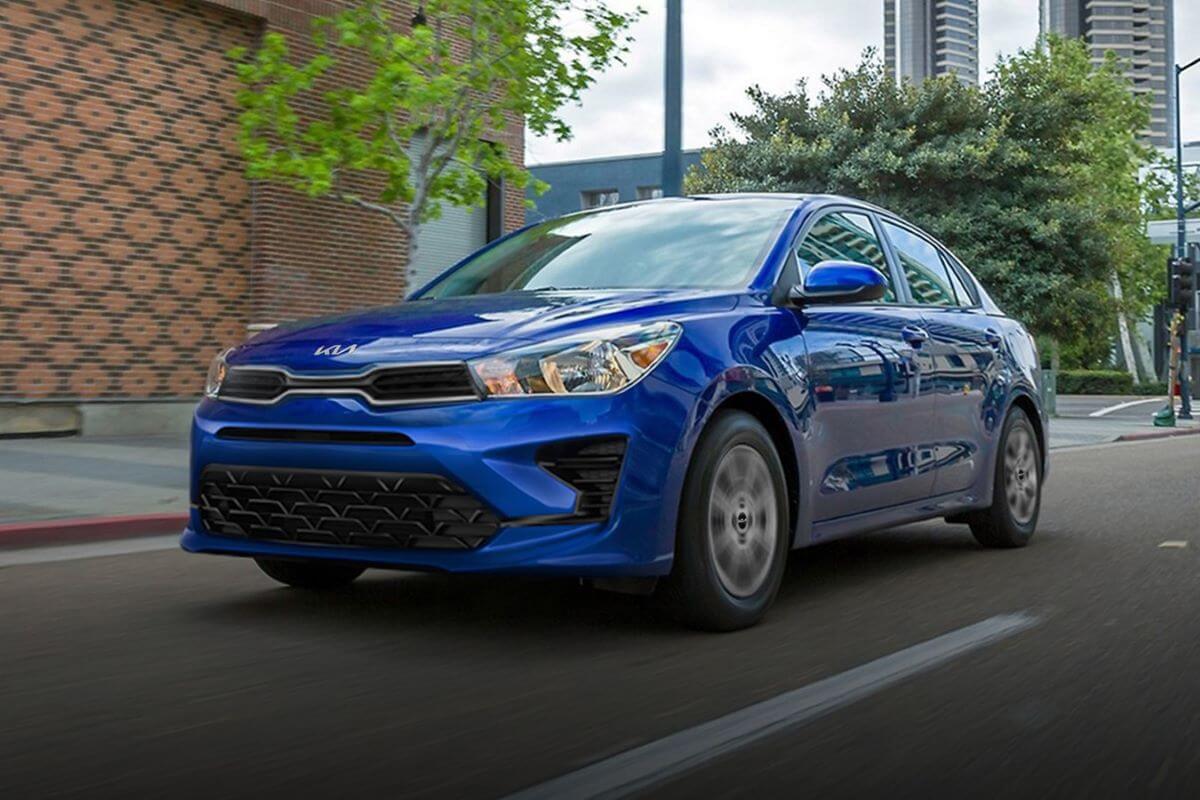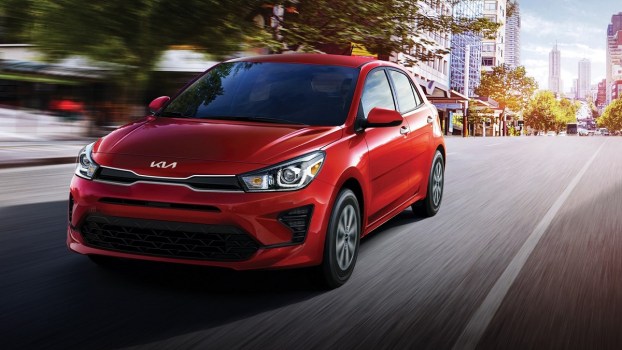
4 Advantages the 2023 Kia Rio Has Over the 2023 Nissan Versa
The 2023 Kia Rio and the 2023 Nissan Versa are subcompact cars with good fuel efficiency, affordable pricing, and a range of features that make them ideal for drivers who want a reliable vehicle for daily commuting or city driving. Both cars also have similar dimensions and interior space, making them suitable for small families or individuals who prioritize fuel economy and practicality. However, some key differences between these two vehicles set them apart. Here’s a look at four advantages the Rio has over the Versa.
1. The Kia Rio offers two body style options
One of the advantages that the 2023 Kia Rio has over the 2023 Nissan Versa is that it is available in both a four-door sedan and a five-door hatchback configuration, as Kia states. Meanwhile, the Nissan Versa comes only as a four-door sedan. The hatchback design of the Kia Rio offers more cargo space and versatility, making it an attractive option for drivers who need additional storage capacity. Hatchbacks provide more space and flexibility in the cargo area, allowing drivers to transport larger items that wouldn’t fit in a traditional sedan.
Additionally, the hatchback’s fold-down rear seats make it easy to accommodate larger items, such as furniture or sports equipment, by increasing the cargo area. Overall, the Kia Rio’s body style options provide drivers with added convenience and flexibility, making it a more appealing choice than the Nissan Versa.
2. Superior fuel efficiency

According to U.S. News, the Kia Rio has an EPA-estimated fuel economy of 32 mpg in the city and 41 mpg on the highway, while the Nissan Versa’s fuel economy ranges from 27-32 mpg in the city and 35-40 mpg on the highway, depending on the configuration. This means that the Kia Rio can travel farther on a single tank of gas than the Nissan Versa, making it an excellent choice for drivers who want to save money on fuel costs.
The Rio achieves this impressive fuel economy rating through its efficient engine and transmission and its lightweight design. Furthermore, the Rio’s fuel efficiency doesn’t come at the cost of performance or comfort, as it still offers a smooth and responsive driving experience. Therefore, the Rio’s superior fuel efficiency is a significant advantage over the Nissan Versa, making it a practical and cost-effective choice for drivers.
3. Comfortable ride quality
Thanks to its suspension tuning and noise insulation, the Kia Rio offers a smooth and comfortable ride, even on rough or bumpy roads. On the other hand, the Nissan Versa has been criticized by U.S. News for its “mixed ride quality.” This means that while the Versa is generally comfortable on smooth roads, it may struggle to absorb bumps and vibrations, leading to a less comfortable ride for passengers.
Compared to the Nissan Versa, the Kia Rio’s superior ride quality offers a more comfortable and enjoyable driving experience, making it a better option for drivers who value convenience and comfort.
4. Superior warranty coverage from Kia
With Kia’s 10-year/100,000-mile powertrain warranty, owners can enjoy a longer and more comprehensive coverage period for potential powertrain-related issues. This gives Kia owners greater peace of mind and confidence in their vehicle’s reliability and durability. In comparison, Nissan’s powertrain warranty for the Versa is only five years/60,000 miles.
When deciding which subcompact car to purchase, warranty coverage is essential. Kia’s more extended warranty coverage suggests that the automaker stands behind its products and is willing to support its customers for an extended period. This can provide added value to the vehicle and potentially save owners from expensive repairs down the line.



